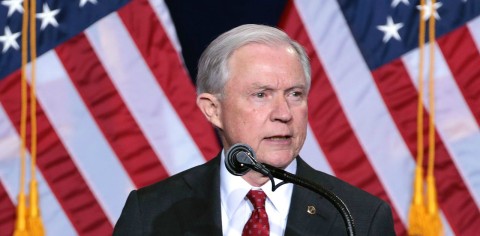Can a corporation exercise religion?
According to the Trump administration, even a company owned by millions of unrelated people can be a person of faith.

In recent years, religious exercise claims by Christians have clashed repeatedly with other rights claims, such as for equal treatment under the law. The Trump administration has made its sympathies clear: it will put its thumb down heavily on the religious freedom side of the scale. In October, Attorney General Jeff Sessions released a memo spelling this policy out in sweeping detail.
Some critics of this move have focused on Sessions’s assertion that the government cannot “second-guess the reasonableness of a religious belief.” But this is one place where Sessions is, at face value anyway, correct. The U.S. government has been rightly reticent to determine which beliefs are worth protecting. The more alarming development concerns not the beliefs but the alleged believer: Who gets to claim such protection? “Government shall not substantially burden a person’s exercise of religion,” states the Religious Freedom Restoration Act of 1993. But what counts as a person?
That question was addressed in 2014 when the Supreme Court ruled that Hobby Lobby and other closely held corporations are eligible under RFRA for exemptions from Obamacare’s contraception mandate. Writing for the majority, Justice Samuel Alito acknowledged that corporate personhood is just a legal construct but argued that protecting a corporation’s free exercise amounts to protecting the exercise of the actual persons who own it. As for whether that rule also applies to publicly traded corporations with more diffuse ownership, Alito maintained that the question of their religious exercise was not on the table at that time.





